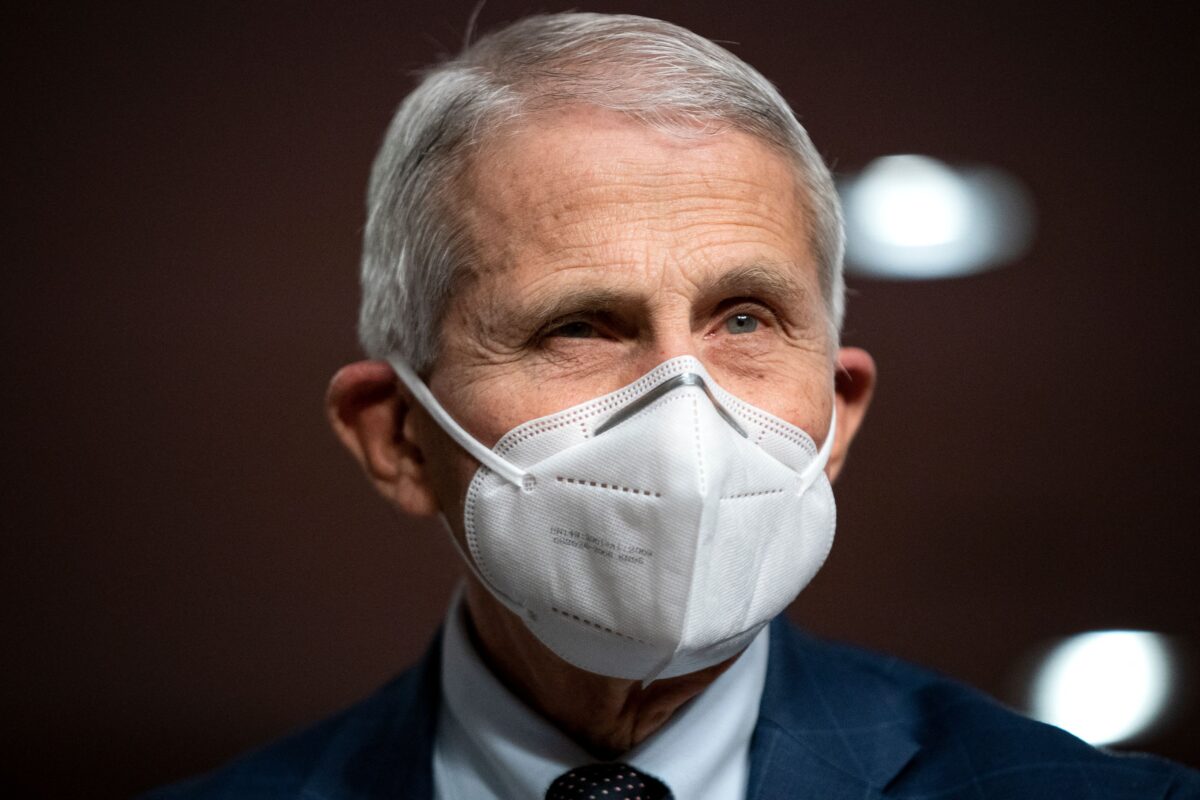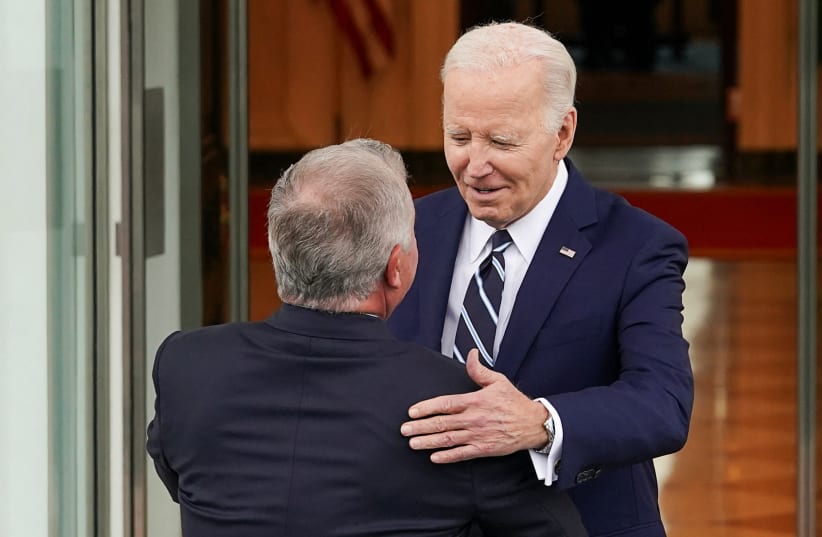“But as the days of Noe were, so shall also thecoming 2555: parousia, par-oo-see´-ah; from the present participle of 3918; a being near, i.e. advent (often, return; specially, of Christ to punish Jerusalem, or finally the wicked); (by implication) physically, aspect: — coming, presenceof the Son of man be."— Matthew 24:37
“There werecorrupt 7843: > shachath, shaw-khath´; a primitive root; to decay, i.e. (causatively) ruin (literally or figuratively):—batter, cast off, corrupt(-er, thing), destroy(-er, -uction), lose, mar, perish, spill, spoiler, x utterly, waste(-r)before God, and the earth was filled with violence."— Genesis 6:11
Article Source: Epoch Times
Dr. Anthony Fauci and top officials at the agency he heads scrambled in April 2020 to answer questions about altering the endpoint in a trial testing the antiviral drug called remdesivir, newly obtained emails show.
The endpoint was changed in the middle of the trial from measuring the effectiveness against death and various forms of hospitalization on day 15 to time to recovery through day 29.
Gilead Sciences, which makes the drug, announced the results of the trial in early April 29, 2020. Within hours, Fauci, the longtime head of the National Institute of Allergy and Infectious Diseases (NIAID), was trumpeting them to reporters at the White House.
The trial results proved that remdesivir “can block the virus” that causes COVID-19, said Fauci, who didn’t mention the change in the endpoint.
Just hours later, doctors and reporters started questioning researchers involved with the trial and NIAID, which funded the study and said its officials were behind the change.
Officials at the agency were not prepared for questions about the matter, according to emails obtained by The Epoch Times and never published before.
Dr. Andre Kalil, an infectious disease expert at Nebraska Medicine Omaha who was helping run one of the trial sites, told Fauci, Dr. Clifford Lane, and John Beigel, all top NIAID officials, at 3:19 a.m. on April 30, 2020, that he had received multiple requests from colleagues and reporters on why the primary outcome was changed while the trial was underway.
“Believe it or not, but I even heard nonsense things such as a conspiracy theory that Gilead opened the database and changed the primary outcome to favor the trial results,” Kalil wrote. “In order to prevent more conspiracies, I thought about a transparent and objective way to respond to these questions, so we can all be on the same page.”
The statement he proposed was redacted. NIAID, which released the emails based on a Freedom of Information Act request, cited an exemption that allows the government to shield inter-agency or intra-agency memorandums or letters “which would not be available by law to a party other than an agency in litigation with the agency.”
About two hours later, Lori Dodd, an NIAID statistician, responded by saying she liked what Kalil wrote. Soon after, Beigel, the trial’s principal investigator, said he was “merging the two” in an email that was otherwise redacted and on which Kalil had been cut out.
A draft statement was sent to the Food and Drug Administration, which “cleared with Gilead” a paragraph about the regulator’s “commitment to expediting” COVID-19 treatments and how the agency had been in touch with Gilead about making remdesivir available to patients “as quickly as possible, as appropriate,” the emails show.
The statement was still being adjusted at 3:20 p.m., according to a missive from Jennifer Routh, an NIAID spokeswoman, sent to Beigel, Lane, and others.
“We now have 10 media inquiries asking about why the primary endpoint in the remdesivir study changed,” she said, adding later: “We need a statement to respond as soon as possible. Is this OK to send or is this still under review?”
The draft statement was redacted.
Reporters from the Wall Street Journal, CNN, and the Washington Post, among others, had reached out, with the latter later quoting Dr. Steven Nissen, a cardiologist at the Cleveland Clinic, as saying government scientists shifted the endpoint because they “thought they weren’t going to win, and they wanted to change it to something they could win on.”
Another expert, Henry Drysdale of the University of Oxford, panned the NIAID’s statement, saying, “Whenever I see an explanation like this when an outcome-switching has happened, that’s fine, but you were not open about this when you reported your quote-unquote exciting results.”
NIAID ultimately sent a statement out around 4:30 p.m., with The Epoch Times being one of the outlets that obtained it.
“Little was known regarding the natural course of COVID-19 when the trial was initially designed, and the initial endpoint chosen specified a single time point for evaluation, namely day 14. However, with the growing knowledge during the epidemic, we learned that COVID-19 had a more protracted course than previously known. Further concerns were raised about the reliance on a single time point for evaluating treatment effects,” the agency said.
“While still blinded to treatment assignment, NIAID statisticians performed modeling of what happens if the right day is not picked for assessment, which revealed that meaningful treatment effects could be missed with that primary endpoint. Time to recovery avoids this issue, and the change in the primary endpoint seemed appropriate given the evolving clinical data. This change in the primary endpoint was made without any knowledge of data from ACTT before any interim data was available.”
ACTT is the name of the trial.
Biegel, Dodd, Kalil, and others involved in the study wrote in the New England Journal of Medicine following the peer review of the results that the change was proposed on March 22, 2020—after 72 patients had been enrolled—by statisticians who were “unaware of treatment assignments and had no knowledge of outcome data.” The change was finalized on April 2, 2020, he said, and the primary measure became one of many secondary outcomes.
On the trial’s official page, the change in outcome was not reported until April 16, 2020.
Additionally, during an April 24, 2020, teleconference that included then-National Institutes of Health (NIH) Director Dr. Francis Collins, the original primary endpoint was still listed as the main endpoint, according to slides obtained by The Epoch Times. The data in the slides was listed currently as of April 6, 2020.
Executives and scientists from Pfizer, Johnson & Johnson, and AstraZeneca, among others, took part in the meeting. Bill Lee, Gilead’s executive vice president of research, was listed as a “tentative” attendee but it wasn’t clear whether he ended up attending.
Gilead, NIAID, and Fauci did not respond to requests for comment.
The emails also showed that Fauci listed erroneous statistics at the White House.
Fauci “used the old mortality numbers,” Routh wrote shortly after the doctor spoke during an appearance with then-President Donald Trump.
“Just spoke with Dr. Fauci on phone. He confirmed he has the new numbers,” Kimberly Barasch, with the office of the NIAID director, said.
“To be clear though, he USED the old numbers,” Courtney Billet, an NIAID spokeswoman, responded. “And I talked to him just now on the phone and he confirmed we should stick with those in a written statement.”
“Fauci was great. Good job to all who prepped him, and thanks for trying to squeeze in the updated numbers,” Dodd later wrote.
“Thanks to all for the help—the process wasn’t pretty but it worked out in the end!” Billet said.
The impact of the trial results was dramatic. Remdesivir has immediately declared the new standard of care, or the standard treatment for COVID-19 patients, in a time when cases, hospitalizations, and deaths were overwhelming some hospitals. No other treatment had received such positive promotion from top government officials at that time.
Before the results were announced, meanwhile, Gilead sent Beigel a press release that the company planned to issue “just before the market opens tomorrow AM.”
“There will be a lot of interest after that statement,” Beigel wrote, sharing the release with Routh, Lane, and others with NIAID.
Fauci quickly reviewed the release and had no issues with it, Routh said.
After the Gilead and NIAID announcements on April 29, 2020, Tomas Cihlar, a senior vice president at Gilead, wrote to Lane thanking him for the ACTT trial “and the amazing work your clinical team did.”
“Congratulations,” Cihlar said.
The first part of Lane’s response was redacted.
“I am glad for Gilead as well,” Lane also wrote.




